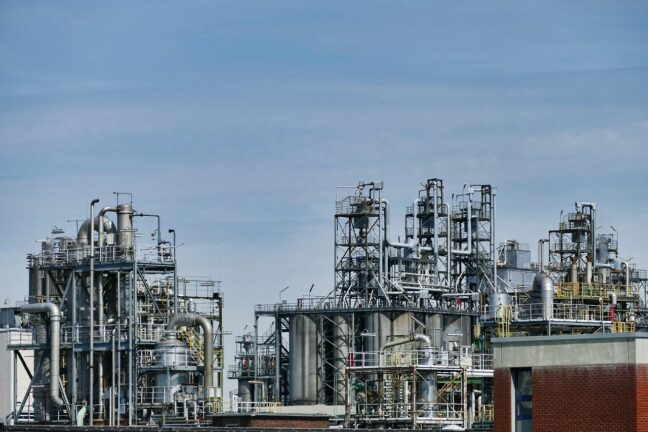The Judiciary Tribunal of Paris has ruled that France’s energy giant TotalEnergies misled consumers about its climate commitments. The ruling comes at a moment when the European Union is split over the European Commissions apparent effort to water down anti-greenwashing legislation in order to boost the bloc’s business activity.
The case, finalised late last week, focuses on claims that accompanied the group’s 2021 rebrand from Total to TotalEnergies.“TotalEnergies and its subsidiary TotalEnergies Electricité et Gaz de France had committed misleading commercial practices, by referring to their ambition to achieve carbon neutrality by 2050 and to be a major player in the energy transition” in their communications to consumers, the day after the announcement of the change of its name Total to TotalEnergies and the presentation of a new energy mix strategy. The court ordered the firm to stop spreading those statements within a month or face daily fines.
The judges found the company’s imagery—wind turbines, solar panels and talk of a carbon‑neutral future—did not match its business reality. As of 2024, fossil fuels still represented 97 per cent of TotalEnergies’ total energy production and 80 per cent of its investments. The tribunal said the group had exaggerated its commitments and contributions to CO2 emissions reductions.
A major victory
The court set a timeline for correction. It demanded that deceptive content be removed within a month or the company face penalties of “up to €20k per day.” The decision is important only on a symbolic level. It means that should TotalEnergy keep the misleading claims in place for another 13 months (12 of them illegally), the fine would reach €7.3m. To put the figure in some pespective, the company’s net income amounted to €18.3bn in 2024.
The ruling also awarded damages and legal costs to environmental claimants. Friends of the Earth France, Greenpeace France and Notre Affaire à Tous were among the plaintiffs. Each organisation received €8k in damages, with an additional €15k to cover legal fees. Les Amis de la Terre France called the decision “a major victory against the reign of environmental disinformation. On the eve of COP30, it also sends a strong signal in favor of the necessary energy transition, while the year 2024 has been marked by the symbolic excess of 1.5 °C of global warming.“
You might be interested
TotalEnergies said it would comply with the court’s ruling. The company acknowledged the judgement while disputing the overall thrust of the criticism. Its response accepts the requirement to remove certain communications rather than disputing the court’s findings in public statements cited in the case documents.
Why Europe matters
The ruling lands amid a wider European push to police green claims. Regulators and courts across the continent have already examined airlines and consumer brands for overstated environmental assertions. This judgement therefore reverberates beyond a single firm and tests how European policy on sustainability claims will be enforced.
European rules have tightened in recent years to curb misleading marketing about environmental performance. The case will likely influence how firms draft advertising and sustainability reports. Legal scrutiny now homes in on whether marketing statements match actual investment flows and operations.
TotalEnergies and its subsidiary TotalEnergies Electricité et Gaz de France had committed misleading commercial practices. — the Judiciary Tribunal of Paris
The mismatch here was clear: an ambitious name and glossy campaigns versus a balance sheet still dominated by hydrocarbons. That gap proved decisive in the tribunal’s view and offers a template for future litigation.
A contagious precedent
The tribunal’s decision may prompt similar suits across the continent. Analysts point to other oil majors—Shell, BP and Eni among them—that could face comparable scrutiny if their messaging outpaces reality. For the first time, a major oil and gas company confronts legal consequences for presenting itself as environmentally responsible while remaining heavily dependent on fossil fuels.
Climate litigation has risen globally. A study by Grantham Research titled Global Trends in Climate Change Litigation: 2025 Snapshot shows nearly 60 countries reporting such litigation and more than 2,900 cases worldwide since 2024. The field now covers governments, companies and financiers; strategic litigation aims to force policy shifts; other suits test mitigation projects and local impacts.
Financial actors have noticed. Banks, insurers and investors increasingly treat litigation risk as a material threat. Lawsuits can alter valuations, raise compliance costs and dent reputations. The modest damages here matter less than the legal recognition of liability for promotional excess.
The broader litigation trend
Some climate cases press for more action; others resist it. The landscape includes “green v. green” disputes where one environmental aim clashes with another. Courts now address who bears responsibility for emissions, how to prove damage and how to enforce remedies. Precedents such as Urgenda show courts can compel policy changes; the TotalEnergies ruling adds a corporate accountability angle.
The materials note that around 27 per cent of climate cases in 2024 opposed climate action—often in the US—and that legal tools such as SLAPP suits (strategic lawsuit against public participation, legal action brought by powerful actors to silence critics, mostly journalists, activists, campaigners, community groups) have been used to stifle campaigners. Elsewhere, litigation has forced governments to alter policy, and financial institutions to reassess risk exposures. The rising caseload makes clear that litigation now complements regulation and markets as a lever in the energy transition.
(The ruling) also sends a strong signal in favor of the necessary energy transition, while the year 2024 has been marked by the symbolic excess of 1.5 °C of global warming. — Les Amis de la Terre France, an NGO
The tribunal dismissed some accusations. It found that statements about fossil gas and biofuels were informational rather than commercial. That distinction matters. Courts commonly draw a line between permissible discussion of future plans and actionable misrepresentation. Law still allows companies room to discuss ambitions. But the ruling clarifies limits when marketing strays into salesmanship without substantiation.
Legal limits
The remedy focuses on communications rather than immediate operational change. Forcing the removal of misleading content pressures corporate messaging. That, in turn, can shape investor perceptions and consumer behaviour. Firms may react by tightening disclosures rather than overhauling business models overnight.
Expect appeals. The case may travel through France’s courts and possibly influence jurisprudence elsewhere. Campaigners will use the verdict as leverage in regulatory and shareholder arenas. They argue transparency in advertising and reporting is essential to honest markets and public debate about energy choices.
The judgement underscores a wider point. Litigation now mixes with policy and markets to define corporate climate responsibility. For firms operating in Europe, the French ruling may be a harbinger of more to come: if your words outpace your deeds, courts may intervene.











